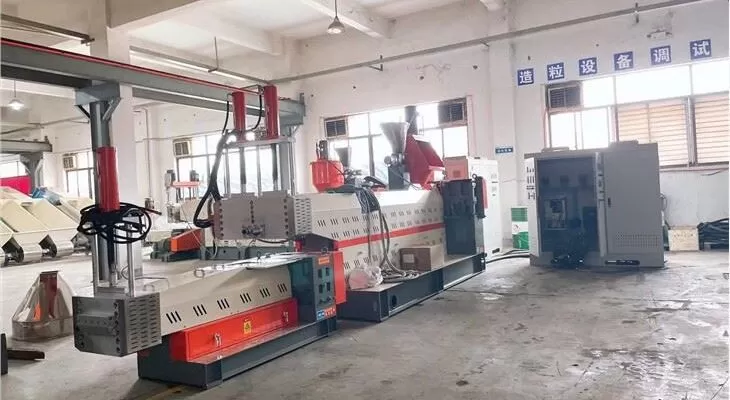Pollution, a peril we’ve created and one we must solve. In Ecuador, a land famed for its breathtaking landscapes and biodiverse ecosystems, the stakes are particularly high. As CEO of Amige, a leader in producing plastic recycling machinery, I’ve witnessed first-hand the impacts of environmental negligence and the transformative power of recycling technology.

Ecuador is making strides in managing its environmental pollution, with a significant focus on improving plastic recycling. Leveraging cutting-edge technologies and innovative policies, the country is working towards not only reducing plastic waste but also turning it into a valuable resource.
This journey is both challenging and inspiring. Today, I want to share insights into how Ecuador is addressing these issues and the role of advanced recycling technologies like those we develop at Amige.
What’s the Current State of Environmental Pollution in Ecuador?
Ecuador has long battled with pollution issues, particularly plastic pollution, which threatens its rich marine and terrestrial biodiversity. Reports indicate that urban areas like Quito and Guayaquil see significant waste generation, a large portion of which has historically ended up in landfills or the ocean. Initiatives are now underway to change this narrative.
How Serious is Plastic Pollution in Ecuador?
The statistics are alarming. Urban centers in Ecuador produce an estimated 970,000 tons of solid waste annually, with a substantial portion comprising plastics that are not biodegradable. Efforts to curb this trend have been ramping up, reflecting a growing awareness and urgency to address the environmental impacts.
What Strategies Are Being Implemented to Combat This?
Ecuador’s approach includes strengthening waste management frameworks, investing in recycling facilities, and promoting community engagement initiatives. For instance, the Ecuadorian Ministry of Enviroment has been actively implementing policies to reduce single-use plastics and enhance recycling capabilities nationwide.
How Effective Are These Recycling Initiatives?
The results are starting to show. In major cities, recycling rates have gradually increased, thanks to new facilities and an improvement in public recycling behaviors. Local governments are also partnering with international bodies to bring in expertise and funding, helping to expand the reach and efficiency of recycling programs.
What Role Does Technology Play in Enhancing Recycling Efforts?
As a manufacturer of plastic crushers and shredders, I’ve seen the difference technology can make. High-quality, durable, and technologically advanced machinery is crucial for efficient recycling processes. These machines reduce the volume of waste, transform it into usable material, and are an integral part of the recycling chain.
Are There Success Stories of Recycling in Ecuador?
Absolutely, and they’re quite inspiring. For example, in Guayaquil, innovative projects have turned thousands of plastic bottles into textile fibers and construction materials. These initiatives not only reduce waste but also create jobs and foster a circular economy.
How Can Other Countries Learn from Ecuador’s Experience?
Ecuador’s journey offers valuable lessons in community involvement, governmental policy, and the pivotal role of technology in environmental management. Countries looking to enhance their recycling capabilities can learn from the way Ecuador integrates technology with policy and public engagement to create a robust recycling ecosystem.
Conclusion
Ecuador is on a promising path in combating environmental pollution and enhancing its plastic recycling efforts. As we continue to support these advancements with our technology at Amige, we remain committed to the cause of sustainability. Together, we can make a significant impact.
Ecuador’s commitment to tackling plastic pollution and enhancing recycling is not just commendable but a model worth emulating. Join us in this movement towards a cleaner, greener, and more sustainable future. Let’s innovate, recycle, and preserve our planet for generations to come.
